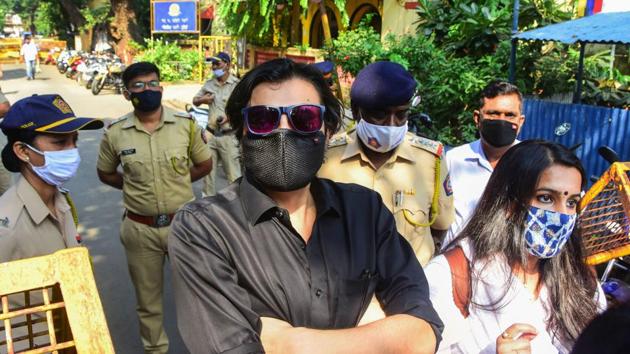The police must stop acting like a political instrument
Caught in the crossfire between the states and the Centre, the police needs to assert itself to remain true to its commitment to the law.
As Mumbai woke up to a mellowed November sun, police forces barged into Arnab Goswami’s home and arrested him in a 2018 abetment to suicide case. Videos have gone viral showing a large contingent of Mumbai Police officials bundling the Republic TV chief into a van. Amidst the sordid drama being played out before the TV cameras, the encounter cop, Sachin Vaze, is said to have told Goswami, “You don’t know what I am capable of.”

The arrest throws up a number of disturbing questions. First, why was the case for abetment to suicide, closed in 2019 for lack of evidence, reopened in May 2020? Under 173(8) of the Criminal Procedure Code, a case can be reopened if new evidence is found. However, it is strange to see the police waking up to it only amid the thick of battle between Goswami, the Uddhav Thackeray led-state government and Mumbai police. The Raigad Police even sought custodial interrogation of the accused, which the magistrate rejected. Was the police investigation under the earlier regime so shoddy or was it closed under political pressure? Would the case have been reopened if the Bharatiya Janata Party (BJP) was partnering Shiv Sena in Maharashtra government today?
Second, if the case was reopened, were the preliminary statements recorded? Was the accused not cooperating? In fact, was it necessary at all to arrest him in a reopened case? The Supreme Court in MC Abraham and others vs State of Maharashtra stated that full discretion is that of the investigating officer and he is not bound to arrest in all cases. Here is a case where arrest was not warranted and asking for Goswami’s custody had the whiff of vendetta.
Third, the case reveals that self-regulation has failed in our democracy and the police seem to be a tool to be used in myriad cases to serve vested interests. From the Editors Guild to various journalist associations, there has been trenchant criticism of Goswami’s arrest but none of them reprimanded or even cautioned Republic TV for its self-styled conduct of investigation, hurting and destroying many a reputation. Scores of Union ministers have called the arrest throttling of democratic expression. This outrage was, however, missing during the arrests of journalists in Uttar Pradesh and other BJP-ruled states. The arrest of dissenting voices has also been witnessed in other states such as Chhattisgarh.
Fourth, a larger question — should the police interfere at all in media matters? The onus rests on the Press Council of India, a statutory quasi-judicial authority operating under the Press Council Act of 1978, to be the regulatory watchdog of the fourth estate. The manipulation of Television Rating Points (TRPs) is again not a police matter. On the information submitted by Hansa Research Group, the Mumbai Police claims to have busted a racket involved in bribing people to watch Republic TV and some other channels.
To do unto the other channels what Mumbai Police was doing unto Republic TV, and like the Sushant Singh case, the Central Bureau of Investigation (CBI) took over the TRP probe on an FIR registered at a police station in Lucknow.
The Broadcast Audience Research Council (BARC), guided by the recommendations of the Telecom Regulatory Authority of India (TRAI) and the ministry of information and broadcasting, is empowered to deal with TRP tampering. Many feel that the TRP investigation is mala fide and vendetta-driven and the police is needlessly caught in the battle between the Centre and state.
Caught in the crossfire between the states and the Centre, the police needs to assert itself to remain true to its commitment to the law. The forces cannot afford to stoop so low as to get involved in puny dogfights. How long can they serve the diametrically opposite demands of successive regimes? The police leadership should stand up strongly against such arrests, and indiscriminate use of draconian laws. Both media and the police have critical roles to play in democratic governance, instead of fighting other people’s battle.
Yashovardhan Azad is a former IPS officer and Central Information Commissioner
The views expressed are personal






